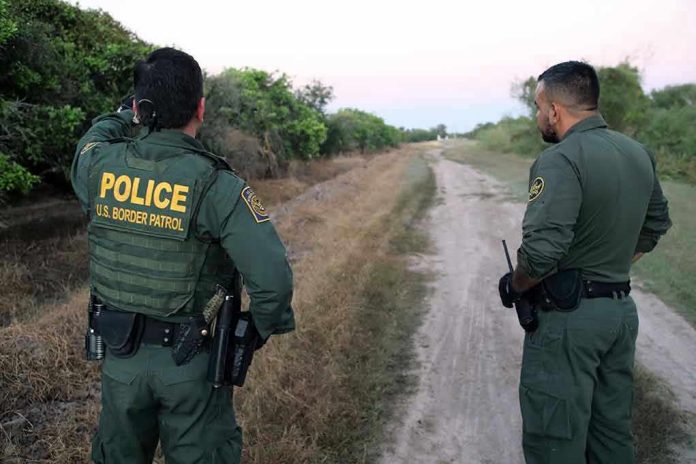
America’s renewed crackdown on illegal immigration is reshaping the nation, raising urgent questions about constitutional rights, family unity, and the future of conservative values.
Story Snapshot
- President Trump’s 2025 administration has enacted sweeping immigration restrictions, reversing Biden-era policies.
- Massive funding and military involvement have expanded detention, expedited removal, and border enforcement.
- New laws drastically limit humanitarian protections, due process, and immigrant access to health and nutrition aid.
- Critics argue these measures risk eroding constitutional guarantees and threaten family stability for millions.
Trump’s 2025 Immigration Reforms: A Conservative Resurgence
After taking office in January 2025, President Trump moved swiftly to fulfill campaign promises on border security and immigration. Executive orders and new legislation targeted illegal migration, sanctuary jurisdictions, and humanitarian programs that conservatives long criticized as loopholes for abuse. These actions reversed Biden-era policies and signaled a dramatic shift back towards prioritizing sovereignty, law enforcement, and traditional American principles. Trump’s administration declared an “invasion” at the border, sealing entry points and barring asylum claims on U.S. territory—a move widely applauded by those seeking a return to constitutional order and limited government.
Expedited Removal and Detention: Balancing Security and Liberty
The administration’s expanded expedited removal authority enables immigration officers to deport noncitizens anywhere in the U.S. who cannot prove two years of continuous residence. This process, once limited to border arrivals, now affects families and communities nationwide. The “One Big Beautiful Bill Act” signed July 4, 2025, allocated $45 billion for immigration detention, quadrupling previous budgets and funding mass detention facilities, including family units. While supporters argue these measures restore public safety and deter illegal crossings, critics caution that rapid deportations and expanded law enforcement powers risk undermining due process and separating families, echoing past “zero tolerance” controversies.
Federal and Military Enforcement: Constitutional Tensions
Trump’s new policies deputize state and local police for immigration enforcement, cutting off funding to “sanctuary” jurisdictions and intensifying cooperation between federal and local agencies. The administration also diverted $1 billion in military resources to border enforcement, deploying armed forces to “seal the border” and repatriate migrants. These actions, while popular among conservatives advocating for law and order, raise questions about constitutional checks and balances. Some legal experts warn that using military assets for civilian law enforcement could violate the Posse Comitatus Act and erode protections against government overreach—an issue central to conservative defense of limited executive power.
Humanitarian Protections and Family Unity Under Threat
New restrictions have eliminated parole programs for Cubans, Haitians, Nicaraguans, and Venezuelans, and terminated Temporary Protected Status for over 300,000 individuals. The administration also indefinitely suspended the U.S. refugee resettlement program, allowing only white Afrikaners from South Africa as an exception. The OBBBA law imposed high fees and penalties for asylum seekers and blocked access to federal benefits for many lawfully present immigrants, stripping children and families of vital nutrition and health resources. These provisions, intended to deter fraudulent claims and reduce costs, have drawn criticism for their impact on family unity and humanitarian principles historically valued in American society.
Conservative Values and the Path Forward
Supporters hail Trump’s 2025 immigration reforms as a long-overdue restoration of sovereignty, law enforcement, and fiscal responsibility. By targeting globalist policies and prioritizing American interests, the administration addresses widespread frustration over illegal immigration and government overspending. However, the scale and speed of these changes have sparked debates over constitutional rights, due process, and family values—core tenets of American conservatism. As legal challenges and public scrutiny continue, conservatives must weigh the benefits of strong border enforcement against the risks of government overreach and erosion of foundational principles that define the nation.
Sources:
The Trump Administration’s 2025 Changes to Immigration Law
Ten Harmful Trump Administration Immigration and Refugee Policies
The Anti-Immigrant Policies in Trump’s Final “Big Beautiful Bill” Explained
Protecting The American People Against Invasion
The Trump Administration Moves to Reinstate Restrictions on Legal Immigration Proposed in First Term




